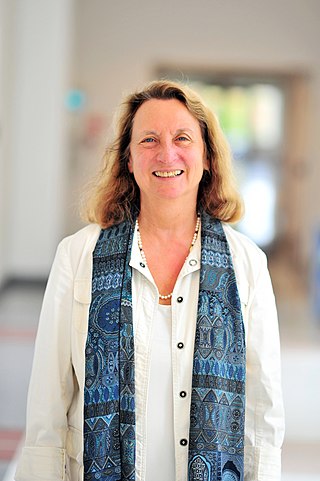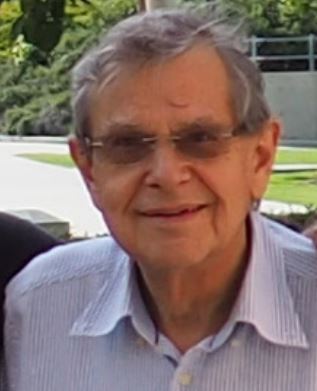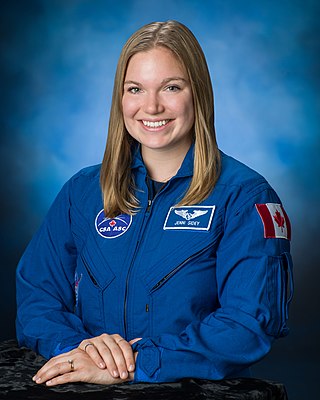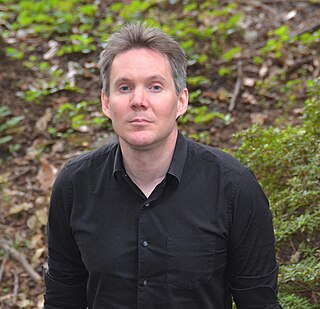Related Research Articles

A flame is the visible, gaseous part of a fire. It is caused by a highly exothermic chemical reaction made in a thin zone. When flames are hot enough to have ionized gaseous components of sufficient density, they are then considered plasma.

Gregory Thomas Linteris is an American scientist who flew as a payload specialist on two NASA Space Shuttle missions in 1997.
Robert A. Altenkirch was the President of University of Alabama in Huntsville and the New Jersey Institute of Technology.
Fire protection engineering is the application of science and engineering principles to protect people, property, and their environments from the harmful and destructive effects of fire and smoke. It encompasses engineering which focuses on fire detection, suppression and mitigation and fire safety engineering which focuses on human behavior and maintaining a tenable environment for evacuation from a fire. In the United States 'fire protection engineering' is often used to include 'fire safety engineering'.
Carlos Fernández-Pello is a faculty member of the University of California, Berkeley, Department of Mechanical Engineering. He also serves as an associate dean in the Graduate Division at Berkeley, where he oversees the Graduate Diversity Program, the American Indian Graduate Program, Graduate Division’s academic services, fellowships, publications, and websites. His research interests are in combustion, heat and mass transfer, microgravity combustion, micro and meso-scale combustion, ignition and flame propagation, smouldering and transition to flaming combustion. Fernández-Pello has been involved in teaching and research activities since the 1970s in different institutions.

The A. James Clark School of Engineering is the engineering college of the University of Maryland, College Park. The school consists of fourteen buildings on the College Park campus that cover over 750,000 sq ft (70,000 m2). The school is near Washington, D.C. and Baltimore, as well as several technology-driven institutions.

José Luis Torero is a professor in fire protection engineering. He is currently the head of the Department of Civil, Environmental and Geomatic Engineering at University College London (UK). He took this appointment after two years (2017-2019) as the John L. Bryan Chair in the Department of Fire Protection Engineering and Director of the Center for Disaster Resilience in the Department of Civil and Environmental Engineering at the University of Maryland (USA). He was formerly the Head of the School of Civil Engineering at the University of Queensland (2012-2017). He is Fellow of the Royal Academy of Engineering (UK) since 2010, the Australian Academy of Technological Sciences and Engineering since 2014 and The Royal Society of Edinburgh (UK) since 2008. He held the BRE/RAE Chair in Fire Safety Engineering and directed the BRE Centre for Fire Safety Engineering from 2004 to 2012. In 2018 he was elected a Fellow of the Royal Society of New South Wales, being gazetted in the NSW Government Gazette by the then Governor of New South Wales His Excellency General, the Honourable David Hurley AC DSC(Rtd).
The College of Engineering at Michigan State University (MSU) is made up of 9 departments with 168 faculty members, over 6,000 undergraduate students, 10 undergraduate B.S. degree programs and a wide spectrum of graduate programs in both M.S. and Ph.D. levels. Each department offers at least one degree program, however many include more than one degree, multi-disciplinary programs, certifications and specialties as well as other degree programs affiliated with other colleges at Michigan State University.
Prabhakar Misra is an American physicist, who researches and teaches at Howard University in Washington, D.C., and is currently a professor in the Department of Physics and Astronomy.

Theodosios Alexander is an American academic, engineer and author. He has served as faculty and in academic administration in four universities, in the UK and USA, following the award of four graduate degrees from MIT, and work in engineering industry.

Elaine Surick Oran is an American physical scientist and is considered a world authority on numerical methods for large-scale simulation of physical systems. She has pioneered computational technology to solve complex reactive flow problems, unifying concepts from science, mathematics, engineering, and computer science in a new methodology. An incredibly diverse range of phenomena can be modeled and better understood using her techniques for numerical simulation of fluid flows, ranging from the tightly grouped movements of fish in Earth's oceans to the explosions of far-flung supernovae in space. Her work has contributed significantly to the advancement of the engineering profession.
Rodica A. Baranescu is a Romanian-American mechanical engineer known for her research in automotive diesel engines. Specifically she focuses on alternative fuels and optimization in emissions and performance of the engines.
Kozo Saito is a mechanical engineer, currently the Tennessee Valley Authority Professor in Mechanical Engineering and also the Director of the Institute of Research for Technology Development, at the University of Kentucky, and also a published author.

Forman Arthur Williams is an American academic in the field of combustion and aerospace engineering who is Emeritus Professor of Mechanical and Aerospace Engineering at the University of California San Diego.

Joseph Majdalani is a Lebanese-American professor of Mechanical and Aerospace Engineering. He began his career at Marquette University, before serving as both the Jack D. Whitfield Professor of High Speed Flows and Arnold Chair of Excellence at the University of Tennessee Space Institute. He then served as the Auburn Alumni Engineering Council Endowed Professor and Chair, and is currently the Hugh and Loeda Francis Chair of Excellence in Aerospace Engineering at Auburn University.

Jennifer Anne "Jenni" MacKinnon Sidey is a Canadian astronaut, engineer, and academic. She was selected by the Canadian Space Agency (CSA) as one of the two members of the 2017 CSA Group alongside Joshua Kutryk. In 2023, CSA assigned her to be Jeremy Hansen's backup for the Artemis II lunar flyby mission. As of the 2023 CSA Artemis announcement, she goes by her married name, Jenni Gibbons.

Ashwani K. Gupta is a British-American engineer and educator with research focus on combustion, fuels, fuel reforming, advanced diagnostics, High Temperature Air Combustion, and high-intensity distributed combustion, green combustion turbine, micro-combustion, and air pollution. He is an Distinguished University Professor at the University of Maryland. Gupta is also Professor of Mechanical Engineering at the University of Maryland and Director of Combustion Laboratory. He is also an Affiliate Professor at Institute of Physical Science and Technology, University of Maryland which is part of the University of Maryland College of Computer, Mathematical and Natural Sciences.

Samuel L. Manzello is a technical advisor at Reax Engineering and visiting professor Tohoku University (Japan). He has worked on microgravity droplet combustion, droplet-surface interaction, soot formation in well-stirred reactor/plug flow reactor, fire-structure interaction, and structure vulnerabilities in wildland-urban interface (WUI) fires.
Nicos Ladommatos is a British mechanical engineer. From 2004, he was the Kennedy Professor for Mechanical Engineering and Head of Department for UCL Mechanical Engineering. In his career, he authored or co-authored over 150 peer-reviewed papers., specialising in the areas of combustion, combustion engines, fuel development and future fuels.

Peter Kelly Senecal is a mechanical engineer, academic and author. He is a co-founder and Owner of Convergent Science and one of the original developers of CONVERGE, a computational fluid dynamics software. Additionally, he holds positions as a visiting professor at the University of Oxford, an adjunct professor at the University of Wisconsin–Madison, and a co-founder and Director of the Computational Chemistry Consortium (C3).
References
- ↑ "Sunderland Named Keystone Professor". University of Maryland . Retrieved 2019-10-02.
- ↑ "Sunderland Designated PI on Upcoming NIST and NSF Projects". University of Maryland . Retrieved 2019-10-02.
- ↑ "NSF Early Career Award". National Science Foundation . Retrieved 2019-10-02.
- ↑ "Ralph H. Isbrandt Automotive Safety Engineering Award". SAE International . Retrieved 2019-09-26.
- ↑ "Sunderland Wins Poole and Kent Teaching Award". University of Maryland . Retrieved 2019-10-02.